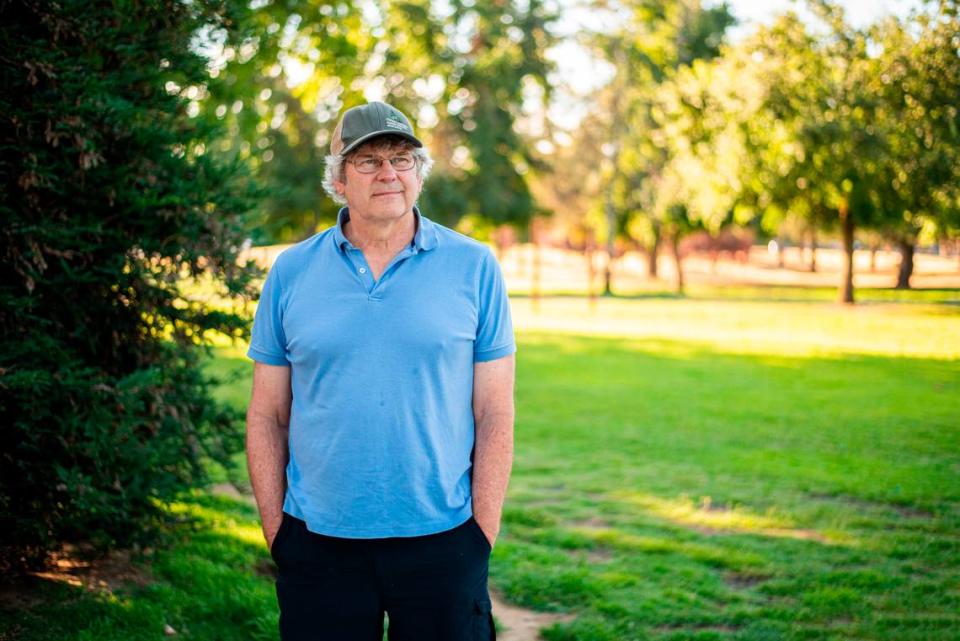Why Fresno-area professors sued California Community Colleges over ‘anti-racism’ mandate | Opinion
In my 25 years of teaching English, I’ve tried to impart upon my students that conjecture and refutation are critical to discovering knowledge. Whether it was Intro to Literature, freshman composition, or critical thinking classes, my method has always been the same: Introduce a text, then attempt to get students to question it, see if the argument works, and ask how it can deepen our understanding of the issue.
Whether we read essays on reparations or affirmative action, the readings I chose always gave two or three different positions. Some of the assignments I’ve given can be provocative or controversial. But I never offered up texts as though they were unassailable or sacrosanct. The point was to expose students to ideas that they might not otherwise have encountered.
I found this all deeply rewarding. What could be better for a democratic society than students learning critical thinking, open inquiry, and engagement with dissenting viewpoints?
But this form of teaching is about to come to a crashing halt.
Under new state regulations, the approximately 54,000 professors who teach in the California Community Colleges system must incorporate “diversity, equity, inclusion and accessibility (DEIA)” viewpoints into classroom teaching. These regulations, among other requirements, explicitly call on professors to “acknowledge” that “cultural and social identities are diverse, fluid, and intersectional.” They also insist that we develop “knowledge of the intersectionality of social identities and the multiple axes of oppression that people from different racial, ethnic, and other minoritized groups face.”
The foundation of my teaching philosophy is engagement with differing viewpoints, and yet here’s an ideology being imposed upon faculty that is riddled with terms that must be understood from a plainly biased perspective.
For example, the provided glossary of terms contains obviously ideological definitions of terms like “equity,” “diversity,” and “anti-racism” — the latter of which includes a note explaining that “persons that say they are ‘not a racist’ are in denial of the inequities and racial problems that exist.”
These requirements are not just completely antithetical to my own perspective as an educator, they’re also a direct affront to the academic freedom that allows me to teach the way I do. In fact, the Community Colleges’ Model Principles and Practices warns faculty not to “weaponize” academic freedom to “impede equity” or “inflict curricular trauma” on students.
It’s not difficult to imagine what may happen if I continue to assign authors with dissenting viewpoints in my class, or have my students watch and discuss debates on controversial questions such as whether the death penalty needs to be abolished because the criminal justice system is systemically racist. I’d even hesitate to use Martin Luther King Jr.’s “Letter from Birmingham Jail” in class because there is no longer a distinction made between the use and the mention of racial slurs.
During my last performance evaluation, I was asked about my commitment to DEIA principles. I voiced my deeply held beliefs about the value of charity and open inquiry. These academic values, I argued, need to be modeled to our students. I kept my job despite my response, but when I am evaluated again in a few years my perspective will likely be unacceptable under the new DEIA requirements.
That’s why five of my community college colleagues and I are suing to halt these statewide regulations that threaten academic freedom and open inquiry, with the help of the Foundation for Individual Rights and Expression.
The architects of these regulations are not offering DEIA as an ideology to be studied, analyzed, and discussed under the light of reason. Any faculty in the coming years who don’t operate inside this framework will not be hired or given tenure — and if we already have tenure, we can be suspended or fired.
I’m not opposed to “diversity” or “inclusion.” How can I have a good critical thinking class without diversity of thought and acknowledgment of lived experiences? I just want to be able to teach about these concepts without being second-guessed or fired because I veer from the ill-defined standards to which we’re now being forced to adhere.
We want to advocate for a diverse student body. We want to fight against racism wherever we find it. But we also want the freedom to question these ideas, to pit them against counterarguments, to ask and wonder and inquire the way I’ve taught my students to do for more than two decades. These broad, vague, ideologically skewed state requirements directly infringe upon that freedom, and that will have terrible consequences for our students and our culture.
Free speech shouldn’t be viewed as a hindrance or obstacle to educational improvement and institutional reform. Free speech is our common ground, the air we breathe, for faculty and administrators alike. If we lose free speech, we probably won’t get it back.
Loren Palsgaard is a professor at Madera Community College.


